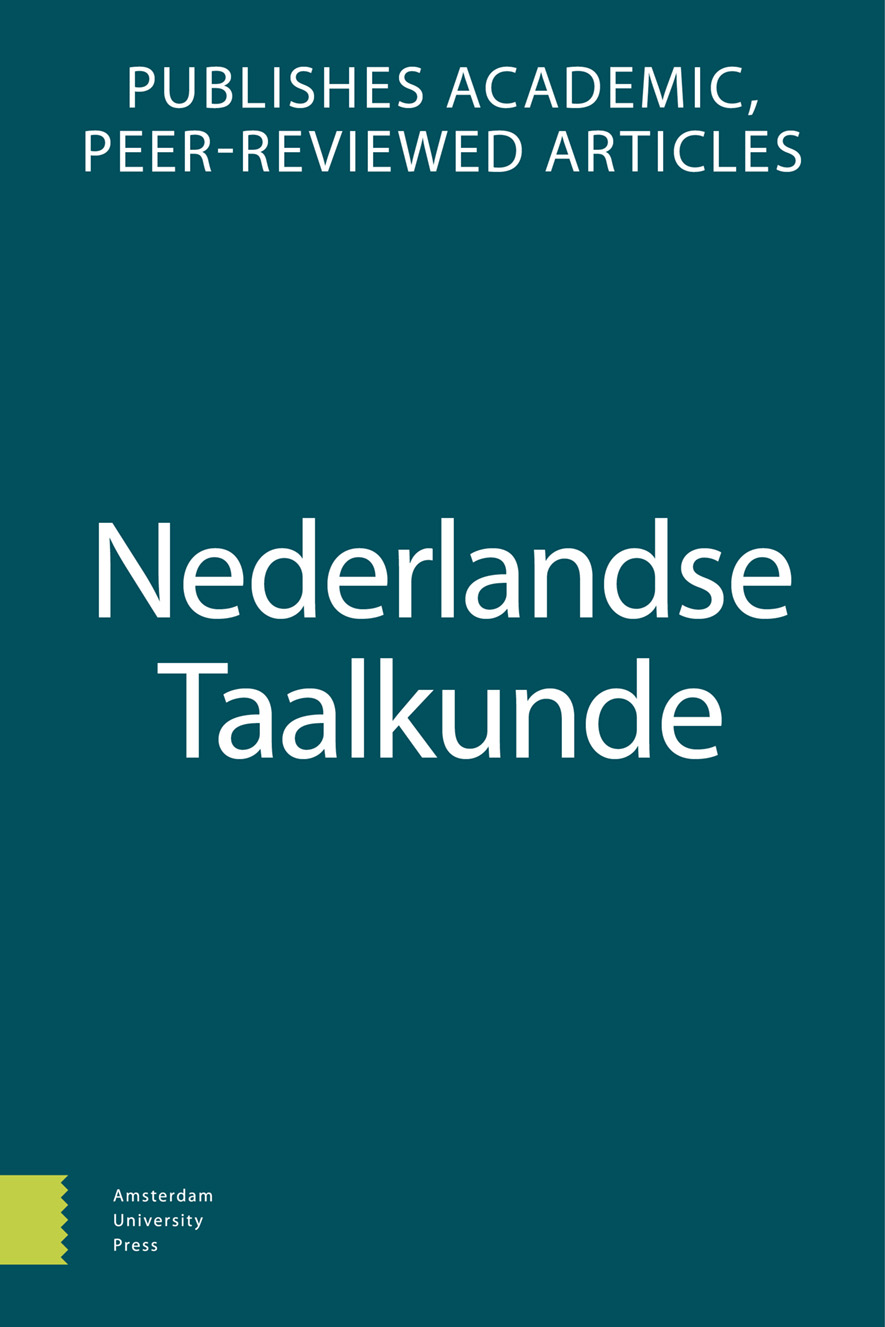-
oa De verwerving van de groene en rode woordvolgorde in Vlaanderen*
Een descriptieve, methodologische en theoretische aanvulling bij Meyer & Weerman (2016)
- Amsterdam University Press
- Source: Nederlandse Taalkunde, Volume 25, Issue 2-3, Oct 2020, p. 213 - 224
-
- 01 Oct 2020
Abstract
The acquisition of [PART+AUX] and [AUX+PART] word order in Flanders. A descriptive, methodological and theoretical addition toMeyer & Weerman (2016)
This paper presents new data on the acquisition of verb clusters in Flemish children. The data were collected by means of a sentence repetition task and the results are in line with the development path for verb clusters in Dutch children as proposed by Meyer & Weerman (2016). While Flemish children also show a development from more 2-1 orders in the youngest group to more 1-2 orders in the older group, this development seems to happen more slowly in Flemish children than in Dutch children. In spite of the fact that the results of both the Flemish and the Dutch study refute an analysis that takes the input adult language as the main factor in verb cluster formation in children, the Flemish data suggest that the higher frequency of 2-1 orders in the Flemish context could help to explain why 1-2 orders are acquired more slowly in Flemish children than Dutch children. In addition, this paper also discusses the results of a production test in Flanders that shows a high preference for 2-1 orders until the age of 7, thus questioning the type of linguistic skills that are assessed in a sentence repetition task.


